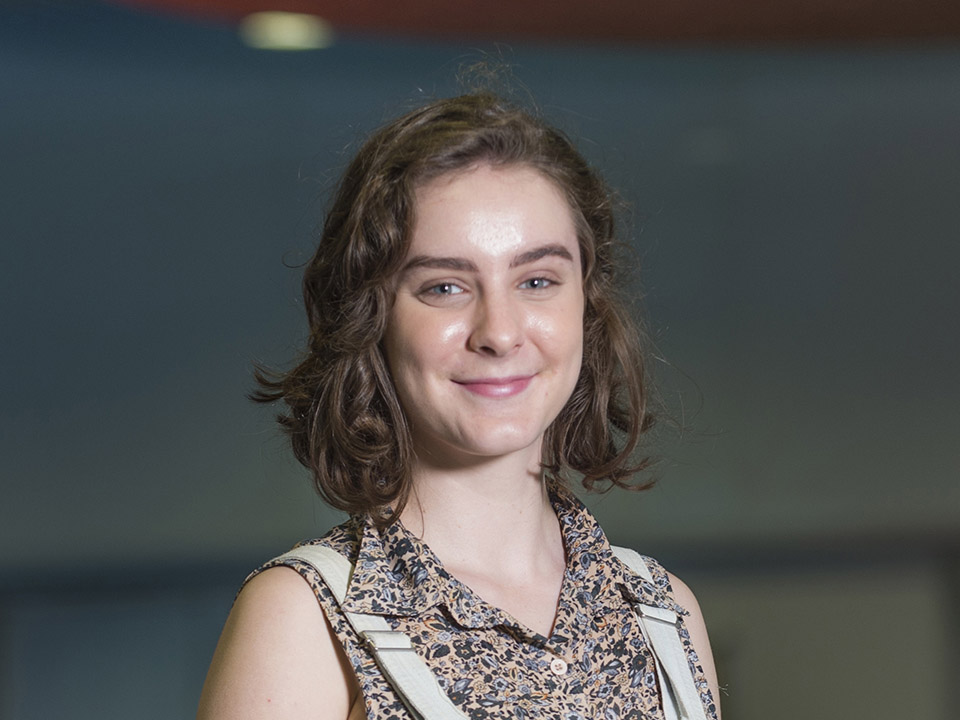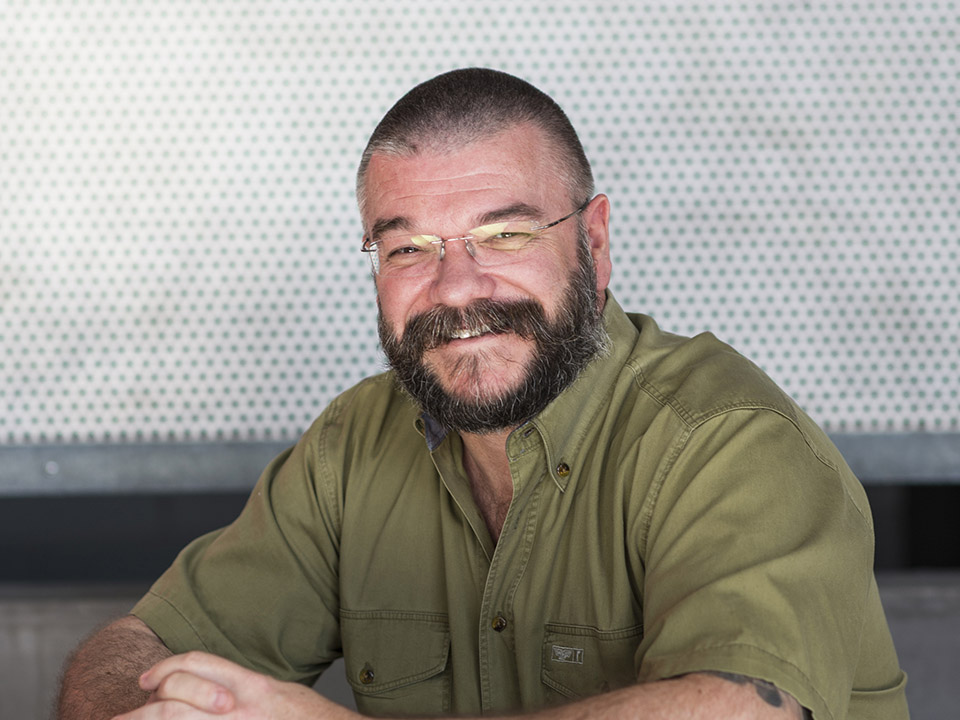Welcome to creative writing
Craig Bolland from our creative writing program explains how writing prepares students for an exciting career in so many disciplines, and how studying at QUT gives a powerful advantage.
A career in broadcasting and writing
QUT graduate Benjamin Law shares how a degree in creative writing can help forge an exciting and diverse career.
Practical learning
'I think the biggest part of my studies that helped me get to where I am today was the experiences on offer and the focus on practical learning. I was constantly learning from a range of professionals that helped me develop my writing techniques and strategies with creative flair to become an effective written communicator.'
Real scholarships
'When I was awarded a scholarship I didn’t realise that it would also open up a world of opportunities. I used some of my scholarship money for an exchange to the University of Glasgow where I studied subjects that weren’t part of the creative writing degree such as archaeology and Scottish literature.'
Welcome to creative writing
Craig Bolland from our creative writing program explains how writing prepares students for an exciting career in so many disciplines, and how studying at QUT gives a powerful advantage.
A career in broadcasting and writing
QUT graduate Benjamin Law shares how a degree in creative writing can help forge an exciting and diverse career.
Practical learning
'I think the biggest part of my studies that helped me get to where I am today was the experiences on offer and the focus on practical learning. I was constantly learning from a range of professionals that helped me develop my writing techniques and strategies with creative flair to become an effective written communicator.'
Real scholarships
'When I was awarded a scholarship I didn’t realise that it would also open up a world of opportunities. I used some of my scholarship money for an exchange to the University of Glasgow where I studied subjects that weren’t part of the creative writing degree such as archaeology and Scottish literature.'
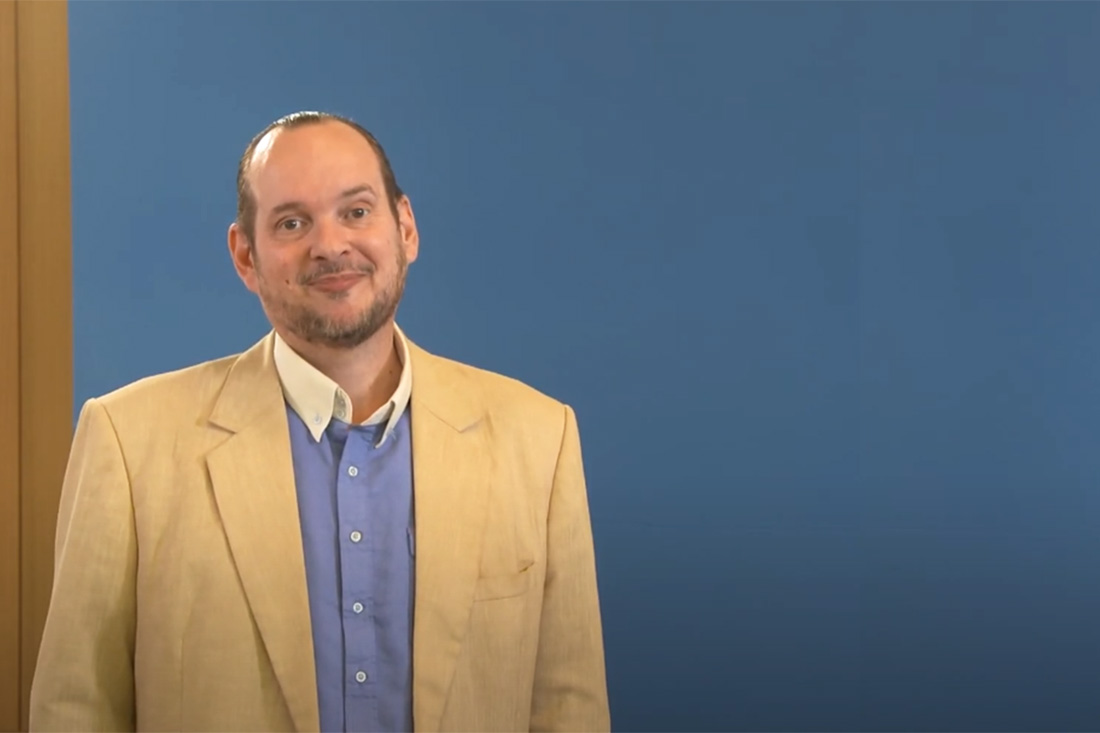
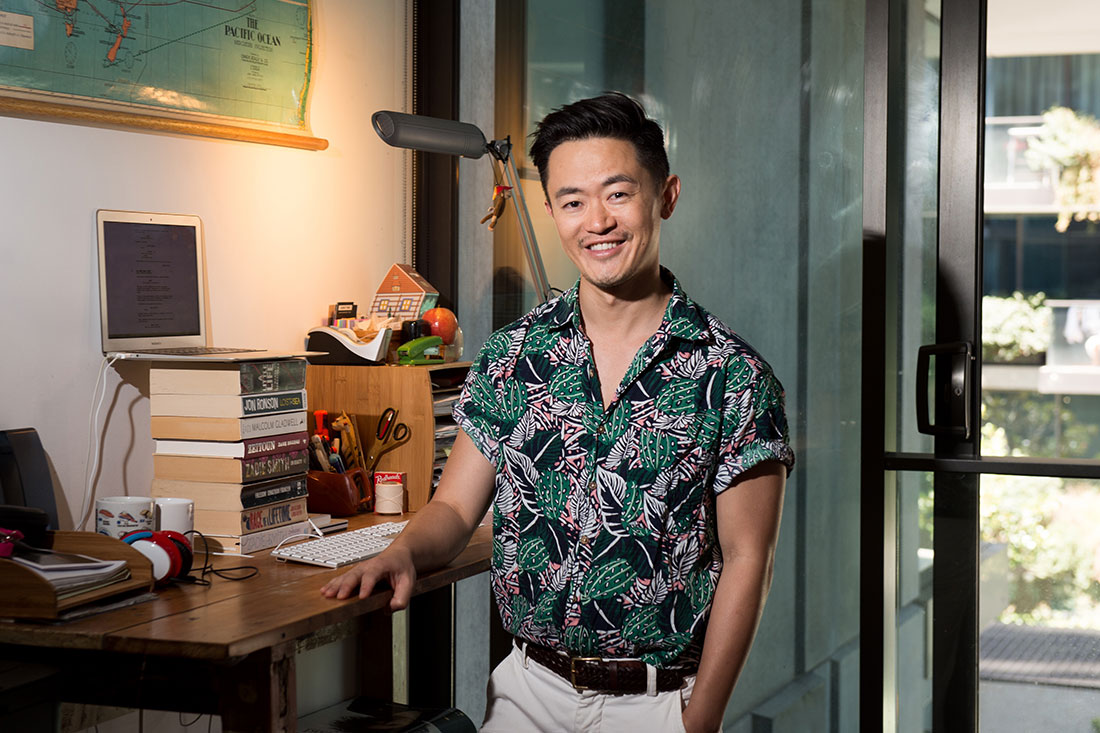
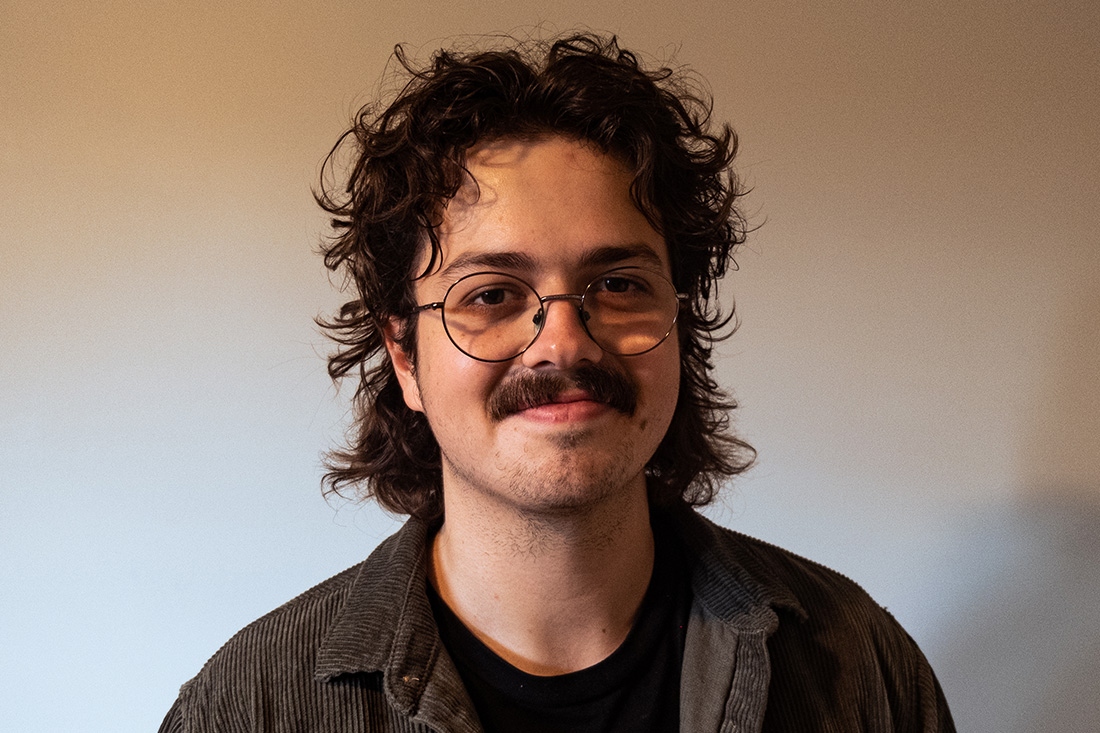





Highlights
- Work creatively on writing novels, poetry, short stories, creative non-fiction, memoir, and genre fiction.
- Work towards a year-long major piece of creative writing in a form and genre of your choice, as well as engage in major transdisciplinary projects with creatives from other fields.
- Gain insight into the national contexts into which your writing will enter as well as the debates and ideas that are enlivening and challenging the ways in which writers create.
- Learn about central ideas from literary theory and ways to think and write critically about texts.
- Learn from highly experienced and published authors, scholars, and experts in creative writing.
- Gain opportunities for exposure with internships at writers’ festivals, literary events, publishing houses, and public readings.
- Graduates work as fiction writers, editors, embedded creatives in technical and corporate contexts, technical writers, script writers, reviewers, travel writers, feature writers, journalists, publishers, media workers, policy workers, government employees and teachers.
Highlights
- Work creatively on writing novels, poetry, short stories, creative non-fiction, memoir, and genre fiction.
- Work towards a year-long major piece of creative writing in a form and genre of your choice, as well as engage in major transdisciplinary projects with creatives from other fields.
- Gain insight into the national contexts into which your writing will enter as well as the debates and ideas that are enlivening and challenging the ways in which writers create.
- Learn about central ideas from literary theory and ways to think and write critically about texts.
- Learn from highly experienced and published authors, scholars, and experts in creative writing.
- Gain opportunities for exposure with internships at writers’ festivals, literary events, publishing houses, and public readings.
- Graduates work as fiction writers, editors, embedded creatives in technical and corporate contexts, technical writers, script writers, reviewers, travel writers, feature writers, journalists, publishers, media workers, policy workers, government employees and teachers.
Why choose this course?
Writing is more central to our culture than ever before. The communication revolution demands written content—on the page, on the screen, and in new and evolving forms and spaces. Writers, storytellers and experts with nuanced and creative language are needed to provoke, entertain and connect to audiences in expanding ways. QUT offers the largest and most comprehensive undergraduate writing course in South-East Queensland with the broadest range of units on offer. Within the BFA structure, you gain the deepest possible access to this knowledge.
Real-world learning
The course is taught by highly experienced published authors and scholars. Visits and guest lectures from writers, editors and publishers will help you gain a unique perspective on writing as a vocation, and provide access to the industry and national writing communities. A thriving on-campus literary culture and associations with festivals and local publishing houses will keep you engaged with fellow travellers and industry tastemakers as you develop your craft. You will benefit from a transdisciplinary approach from the outset, encouraging you as a specialist creative writer to work in teams with others who have different creative skill sets. We aim to produce writers who not only have sophisticated writing skills, but who are critically engaged thinkers with knowledge about the debates and cultural contexts informing our practices today.
Explore this course
Your studies will begin with you working intensively on your writing in a number of forms and genres including novels, short stories, creative non-fiction, science fiction and fantasy writing, media, poetry, digital media, editing and scriptwriting. There will be a focus on new and emergent forms, while learning to think and write critically about texts. From there, you will build specialist writing skills for professional applications via deep engagement with industry partners and contexts. Later in your degree you will choose electives to tailor your course to your strengths and vocational interests. You will write a sustained piece of creative work in a genre of your choice and participate in editing and developing a manuscript for a targeted market.
Double degrees
Combine creative writing with a second study area for greater career flexibility and opportunities in other industries. Consider a double degree with:
- business to develop your career as a creative writer, publishing professional or public relations consultant
- law to use your skills for a career as an in-house lawyer, solicitor in private practice, policy adviser, intellectual property lawyer or crime writer.
If you are looking to apply your creative abilities to education settings or the teaching profession you have some options. You can complete your creative writing course first and then follow with a Master of Teaching in early childhood, primary or secondary education.* You can undertake a double degree in secondary education at the same time as your creative writing degree.
*Check entry requirements for the Master of Teaching for specific teaching areas.
Careers and outcomes
With a creative writing major you will graduate with advanced writing and communication capabilities as well as analytic and editorial experience. These are rare, real-world skills that are keenly sought by employers. Graduates also find success working as creative writers and editors in community and freelance capacities.
Opportunities exist as fiction writers, scriptwriters, reviewers, travel writers, feature writers, editors, publishers, media workers and teachers. The publishing and screen industries, advertising and public relations agencies, magazines, newspapers, digital content providers, government and large corporations all require specialist writers with a flair for language.
Possible careers
- Academic
- Advertising professional
- Art writer
- Copywriter
- Creative writer
- Digital content producer
- Digital copywriter
- Journalist
- Publishing professional
Your course
To meet the course requirements of the Bachelor of Fine Arts (Creative Writing), you must complete the following:
- Two common units (KYB101 and KYB102) – 24 credit points
- Creative Writing major – 168 credit points
- Complementary studies – 48 credit points from the Situated Creative Practice Extension plus 48 credit points chosen from a minor or unit options (electives).
Year 1
- Introduction to creative writing practice.
- Develop critical and analytical skills in reading and writing a variety of literature forms.
- Learn from lecturers and tutors with industry experience.
- Write and analyse short stories, creative nonfiction and youth writing.
Year 2
- Build on practical skills and conceptual backgrounds.
- Study script-writing, stylistics, poetics and corporate writing.
- Explore how a variety of notable novels were written.
- Choose electives to tailor your course to your strengths and vocational interests.
Year 3
- Write a sustained piece of creative work in a genre of your choice.
- Participate in editing and developing a manuscript for a targeted market.
- Undertake an in-depth study of long fiction and life writing.
- Learn about the real world of the writing and publishing industry.
- Expand your study with electives in creative or other disciplines.
Study overseas
Study overseas while earning credit towards your QUT creative industries degree with one of our worldwide exchange partners.
Overseas study can be for one or two semesters (or during the semester break) and the units you take can be in a creative or non-creative discipline area, depending on how they match with your QUT course. Saving your electives for exchange will allow you the most flexibility.
Your course
To meet the course requirements of the Bachelor of Fine Arts (Creative Writing), you must complete the following:
- Two common units (KYB101 and KYB102) – 24 credit points
- Creative Writing major – 168 credit points
- Complementary studies – 48 credit points from the Situated Creative Practice Extension plus 48 credit points chosen from a minor or unit options (electives).
Year 1
- Introduction to creative writing practice.
- Develop critical and analytical skills in reading and writing a variety of literature forms.
- Learn from lecturers and tutors with industry experience.
- Write and analyse short stories, creative nonfiction and youth writing.
Year 2
- Build on practical skills and conceptual backgrounds.
- Study script-writing, stylistics, poetics and corporate writing.
- Explore how a variety of notable novels were written.
- Choose electives to tailor your course to your strengths and vocational interests.
Year 3
- Write a sustained piece of creative work in a genre of your choice.
- Participate in editing and developing a manuscript for a targeted market.
- Undertake an in-depth study of long fiction and life writing.
- Learn about the real world of the writing and publishing industry.
- Expand your study with electives in creative or other disciplines.
Study overseas
Study overseas while earning credit towards your QUT creative industries degree with one of our worldwide exchange partners.
Overseas study can be for one or two semesters (or during the semester break) and the units you take can be in a creative or non-creative discipline area, depending on how they match with your QUT course. Saving your electives for exchange will allow you the most flexibility.
- ATAR/selection rank threshold
- 70.00
These thresholds are the lowest adjusted scores to which QUT made an offer in Semester 1, 2024.
Don't have a ATAR/selection rank?
- Course code
- KK34
- QTAC code
- 421432
- CRICOS code
- 056185A
-
- Kelvin Grove
-
- Kelvin Grove
- 3 years full-time
- 3 years full-time
- February and July
- February and July
Assumed knowledge
Before you start this course, we assume you have sound knowledge of the subject/s listed below. If you don't have the subject knowledge, you can still apply for the course but we strongly encourage you to undertake bridging studies to gain the knowledge:
- English, or Literature, or English and Literature Extension, or English as an Additional Language (Units 3 & 4, C)
Year 12 early offer scheme
If you're a current Queensland Year 12 student, you may be eligible to receive an offer for this course on the last day of Queensland Year 12, before receiving your ATAR or selection rank.
Offer guarantee
If you achieve an ATAR or selection rank of 70.00 or higher (including any adjustments) and satisfy all other admission requirements, you are guaranteed an offer for this course.
Advanced standing
If you have prior studies or work experience, you may be eligible for advanced standing (credit). You can apply for advanced standing once you've been accepted to QUT. If you're in your first semester of study, you must apply for advanced standing within 10 days of receiving your offer.
Deferment
You can defer your offer and postpone the start of your course for one year.
More about deferring your offer
Adjustments to your ATAR/selection rank
Any adjustments you receive to your ATAR or selection rank will be applied to this course.
Find out if you’re eligible for an adjustment to your ATAR or selection rank
Offers we made to school leavers in Semester 1, 2023
The figures listed in the tables below reflect the offers that were made to recent ATAR students. The entry thresholds box at the top of this page shows the lowest adjusted ATAR/selection rank required to receive an offer for all applicants for the most recent January QTAC offer round.
| Excluding adjustments | Including adjustments | |
|---|---|---|
| Highest ATAR/selection rank to receive an offer |
Selection rank
95.45
|
Selection rank
97.45
|
| Median ATAR/selection rank to receive an offer |
Selection rank
81.50
|
Selection rank
82.70
|
| Lowest ATAR/selection rank to receive an offer |
Selection rank
65.45
|
Selection rank
70.00
|
You can find out more about your fellow students’ backgrounds with this course’s student profile.
Other admission options
If you are of Aboriginal or Torres Strait Islander descent, you may be eligible for admission through our Centralised Assessment Selection Process (CASP).
Select the country where you completed your studies to see a guide to the grades you need to apply for this course.
If your country or qualification is not listed, you can still apply for this course and we will assess your eligibility.
I completed secondary school in Australia
- ATAR/selection rank
- 70.00
Offer guarantee
If you completed secondary school in Australia and achieve an ATAR/selection rank of 70.00 or higher (including any adjustments) and satisfy all other admission requirements, you are guaranteed an offer for this course.
Minimum English language requirements
Select the country where you completed your studies to see a guide on meeting QUT’s English language requirements.
Your scores and prior qualifications in English-speaking countries are considered. Approved English-speaking countries are Australia, Canada, England, Ireland, New Zealand, Scotland, United States of America and Wales.
If your country or qualification is not listed, you can still apply for this course and we will assess your eligibility.
We accept English language proficiency scores from the following tests. Tests must be taken no more than 2 years prior to the QUT course commencement.
| English Test | Overall | Listening | Reading | Writing | Speaking |
|---|---|---|---|---|---|
| PTE Academic/PTE Academic Online | 58 | 50 | 50 | 50 | 50 |
|
Cambridge English Score
You must share your results with QUT through the Candidate Results Online website. |
176 | 169 | 169 | 169 | 169 |
| IELTS Academic / IELTS Online / IELTS One Skills Retake | 6.5 | 6 | 6 | 6 | 6 |
| TOEFL iBT / Home / Paper | 79 | 16 | 16 | 21 | 18 |
Don't have the English language score you need? We can help!
We offer English language programs to improve your English and help you gain entry to this course.
When you apply for this course, we will recommend which English course you should enrol in.
Your actual fees may vary depending on which units you choose. We review fees annually, and they may be subject to increases.
2025 fees
2025: CSP fees available from September
2025 fees
2025: Available from July
2024 fees
2024: CSP $12,100 per year full-time (96 credit points)
2024 fees
2024: $34,300 per year full-time (96 credit points)
Student services and amenities fees
You may need to pay student services and amenities (SA) fees as part of your course costs.
HECS-HELP: loans to help you pay for your course fees
You may not have to pay anything upfront if you're eligible for a HECS-HELP loan.
You can apply for scholarships to help you with study and living costs.
QUT Excellence Scholarship (Academic)
QUT's premier offering for students with outstanding academic achievement.
- Scholarship eligibility
- Academic performance
QUT Real World International Scholarship
A scholarship to cover tuition fees, with eligibility based on your prior academic achievements.
- Scholarship eligibility
- Academic performance
Keep up to date
QUT courses for you
Like to save your courses?
Please enter your first name and email so we can save your courses for you
